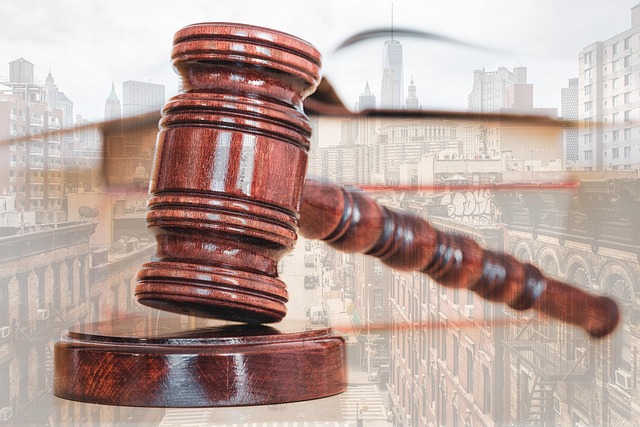Fraudulent financial practices, including investment scams, account tampering, and identity theft, pose significant threats to individuals and institutions. While legal remedies like Search and Seizure Rights in Criminal Law aid authorities, successful prosecutions remain challenging due to complex schemes. Jury trials are essential for accountability and deterrence. This global legal framework, involving areas like securities fraud and money laundering, utilizes Search and Seizure Rights to gather evidence from digital platforms, protecting consumers, investors, and maintaining financial sector integrity. A multi-faceted approach combining internal controls, data analytics, employee training, and legal enforcement is crucial for preventing and detecting fraudulent activities.
Fraudulent financial practices pose a significant threat to individuals, businesses, and global economies. This article delves into the intricate world of financial fraud, exploring its various forms, from common schemes to sophisticated manipulations. We examine the crucial role of search and seizure rights as a criminal law enforcement tool in uncovering these crimes. Additionally, we analyze legal frameworks, impacts, consequences, and prevention strategies, offering a comprehensive guide to understanding and combating fraudulent activities.
- Understanding Fraudulent Financial Practices: Definitions and Common Schemes
- The Role of Search and Seizure Rights in Uncovering Financial Crimes
- Legal Framework: Laws and Regulations Governing Financial Frauds
- Impact and Consequences for Victims and the Economy
- Prevention and Detection Strategies: A Comprehensive Approach
Understanding Fraudulent Financial Practices: Definitions and Common Schemes

Fraudulent financial practices encompass a wide range of illicit activities designed to manipulate or deceive individuals and institutions for monetary gain. These schemes can take many forms, from complex Ponzi networks to simple yet effective identity theft. Understanding these practices involves delving into their defining characteristics and common methodologies.
Among the most prevalent are investment frauds, where criminals pose as financial experts, promising high returns on investments that never materialize. Another scheme is account tampering, involving unauthorized alterations to financial records for personal gain. Identity theft, a growing concern in today’s digital age, leverages personal information to open fraudulent accounts or secure loans. The impact of these practices extends beyond economic losses; they erode trust in financial systems and institutions, undermining stability across the philanthropic and political communities. Legal remedies like Search and Seizure Rights in Criminal Law empower authorities to combat such frauds, but an unprecedented track record of successful prosecutions remains elusive due to intricate schemes and challenging evidentiary requirements. Jury trials play a crucial role in these cases, providing a level of scrutiny and accountability that is essential for deterring future fraudulent activities.
The Role of Search and Seizure Rights in Uncovering Financial Crimes

The role of Search and Seizure Rights is pivotal in uncovering financial crimes, providing a crucial tool for law enforcement agencies to gather evidence during their investigations. These rights, deeply rooted in criminal law, allow authorities to conduct searches of individuals, businesses, and properties, as well as seize relevant documents and assets. By utilizing these powers, investigators can penetrate the often complex web of fraudulent transactions, revealing hidden financial irregularities that may otherwise remain undiscovered.
This process is particularly important in cases involving corporate and individual clients accused of financial misconduct. Search warrants, issued by a judge upon probable cause, enable a thorough examination of financial records, digital devices, and other materials that could hold pivotal evidence. This method has proven effective in securing convictions during jury trials, ensuring the complete dismissal of all charges for those who have been wrongfully accused or mitigating penalties for those responsible for fraudulent financial practices.
Legal Framework: Laws and Regulations Governing Financial Frauds

The legal framework surrounding financial frauds is a robust system designed to protect consumers and investors while ensuring accountability for perpetrators. Laws and regulations vary across jurisdictions but share common goals of deterring fraudulent activities, restitution for victims, and imposing severe penalties on culprits. These laws cover a wide range, including securities fraud, money laundering, tax evasion, and embezzlement. The complexity of financial crimes necessitates specialized investigative techniques such as search and seizure rights in criminal law, crucial tools that enable authorities to gather evidence from various sources, including digital platforms, during all stages of the investigative and enforcement process.
For his clients, understanding these legal frameworks is paramount. Corporate and individual clients alike must be aware of their rights and obligations to avoid falling victim to fraudulent schemes or, if accused, to mount a robust defense. Compliance with relevant laws and regulations not only mitigates legal risks but also enhances credibility in the financial sector, fostering an environment of trust and transparency.
Impact and Consequences for Victims and the Economy

Fraudulent financial practices can have devastating impacts on both individual victims and the broader economy. When individuals fall prey to such schemes, they often face significant financial losses, leading to severe economic strain and even bankruptcy. Beyond monetary damage, victims may suffer from psychological distress, including anxiety, depression, and a loss of trust in financial systems. These practices disrupt the stability of markets, erode public confidence, and can result in systemic crises if left unchecked.
The consequences extend beyond the direct victims, affecting the economy as a whole. Fraudulent activities can lead to a ripple effect, causing declines in investment, reduced consumer spending, and even unemployment. Regulatory bodies and law enforcement agencies play crucial roles in mitigating these effects by employing tools such as Search and Seizure Rights in Criminal Law. Ensuring that perpetrators are held accountable through fair legal processes, including thorough investigations and transparent trials, is essential for restoring trust within the philanthropic and political communities. Avoidance of indictment or a complete dismissal of all charges can undermine justice and discourage victims from coming forward, perpetuating a cycle of fraud.
Prevention and Detection Strategies: A Comprehensive Approach

Preventing and detecting fraudulent financial practices requires a comprehensive approach that combines proactive measures and sophisticated analytical techniques. Organizations must establish robust internal controls, conduct regular audits with a focus on high-risk areas, and empower employees to recognize suspicious activities through training and awareness programs. Utilizing advanced data analytics and artificial intelligence can help identify patterns and anomalies indicative of fraud.
Moreover, leveraging Search and Seizure Rights in Criminal Law plays a crucial role in investigating and prosecuting fraudulent schemes. An unprecedented track record of successful prosecutions sends a strong message, deterring potential perpetrators from engaging in high-stakes cases of financial fraud. This multifaceted strategy—combining robust internal controls, advanced analytics, employee training, and legal enforcement—is essential to maintaining the integrity of financial systems and safeguarding individuals and institutions alike.
Fraudulent financial practices pose a significant threat to individuals, businesses, and the economy at large. By understanding common schemes, leveraging legal tools like Search and Seizure Rights in Criminal Law, and implementing robust prevention strategies, we can mitigate these crimes’ devastating impacts. Awareness, strengthened regulations, and proactive detection methods are key to fostering a more secure financial environment.






